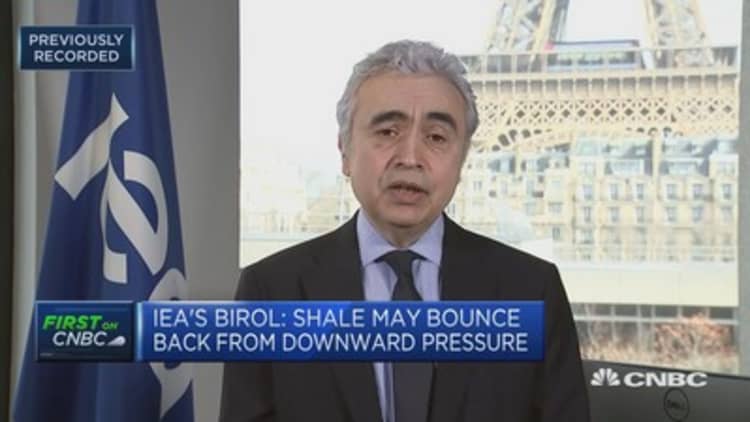After Zambia became the first coronavirus-era debt default on the African continent, analysts are questioning whether nations heavily dependent on Chinese loan financing would be susceptible to debt distress.
The Covid-19 pandemic has posed difficulties for a host of sub-Saharan African countries that have borrowed substantially from China in recent years to fund major infrastructure projects, compounding pressures from a slowdown in the continent's economic growth and falling commodity prices.
Zambia became the first country on the continent to formally default on its debt in November 2020, opting out of a $42.5 million eurobond repayment.
As Africa's second-largest copper producer, falling copper prices in recent years rendered its $11 billion debt pile increasingly difficult to manage, but concerns also emerged from eurobond investors regarding the transparency of its Chinese loan payments.
What we learned from Zambia
"The popularity of Chinese creditors has created a more diverse creditor base than the historical primarily Paris Club bilateral lenders, which complicates the resolution of repayment conflicts," Verisk Maplecroft Research Associate Aleix Montana said in a recent report.
Montana said the Zambia case indicates that beyond just the size of debt, the composition of creditors also plays a role in determining debt risk. Transparency concerns mean Western bondholders are more likely to reject potential debt relief packages in countries borrowing from China, due to fears that debt relief will be used to repay Chinese loans.
Resource-backed loans are often attractive to nations with rich natural resources, a need to finance infrastructure projects and limited access to capital markets. In some of China's financing arrangements, commodities are used as a means of repayment or collateral, Montana highlighted. Loans are often predicated on future production of resources like cocoa, tobacco, oil or copper.
"Repayment deals based on the future value rather than on the quantity of a commodity are especially risky for the borrower, since a decrease in commodity prices in the global market would require an artificial increase in its production to cover the debt obligations," Montana said.
Zambia has now applied for debt treatment under the G-20 (Group of Twenty) common framework, which aims to offer poorer nations a transparent level playing field through which to restructure or reduce unsustainable debt obligations.
"Zambia is committed to transparency and equal treatment of all creditors in the restructuring process, and our application to benefit from the G20 Common Framework will hopefully reassure all creditors of our commitment to such treatment," Finance Minister Bwalya Ng'andu said in a recent statement.
Oil producers and 'resource-backed' loans
Montana expressed concern about high debt levels in oil exporting countries such as Angola and the Republic of Congo, both of which saw their national currencies devalued in recent years by the broad decline in oil prices.
This makes foreign currency-denominated repayments relatively more expensive, while the use of reserve-based lending also exacerbates the countries' risk of debt distress, Montana suggested.
The UN Economic Commission for Africa (UNECA) has also highlighted both Angola and the Republic of Congo as being particularly at risk.
"Apart from being two of the countries with the highest risk in public debt and economic growth in our indices, they are two of the countries that have borrowed more heavily from China," Montana said.

The combination of the external economic downturn, persistent high debt levels and substantial proportion of resource-backed loans render Angola uniquely vulnerable, he contended.
"The case of Angola is particularly concerning, since it is estimated that around 75% of the total Chinese debt is funded this way, often secured by oil exports," he said.
"Angola is the country with the highest amount of Chinese loans, spread across 100 projects to finance oil and power state-owned enterprises."
Montana suggested that companies and investors in Angola can expect credit ratings to further deteriorate, suggesting a sufficient oil price recovery may not come soon enough for the country to meet its debt restructuring obligations in 2021.
Other highly-indebted countries such as Ghana and Mauritania are less exposed to Chinese debt, Montana pointed out, while Ethiopia, Cameroon, Kenya and Uganda have borrowed more heavily from China but are at a lower risk of default.
However, Pangea-Risk CEO Robert Besseling told CNBC that some of the steps taken by Angola since the onset of the pandemic should ease concerns about debt distress.
Angola has joined the G-20 DSSI (Debt Service Suspension Initiative), granting a temporary suspension of repayments to bilateral creditors in the wake of the pandemic. It has also restructured a sizable amount of Chinese debt and remains "in the IMF's good books, at least for now," Besseling said.
Angolan Finance Minister Vera Daves de Sousa told a Reuters conference in January that Africa's second-largest oil producer will look to take advantage of the "three years of breathing space" granted by the debt relief program from its $20 billion-plus in Chinese loan obligations. CNBC has contacted the government of Angola for comment.
"I would rate Angola as being exposed to a long-term threat of economic decline due to an over-reliance on its faltering oil sector, but at mitigated risk of sovereign default in the medium term due to the government's debt relief and loan restructuring, alongside continued multilateral support."

